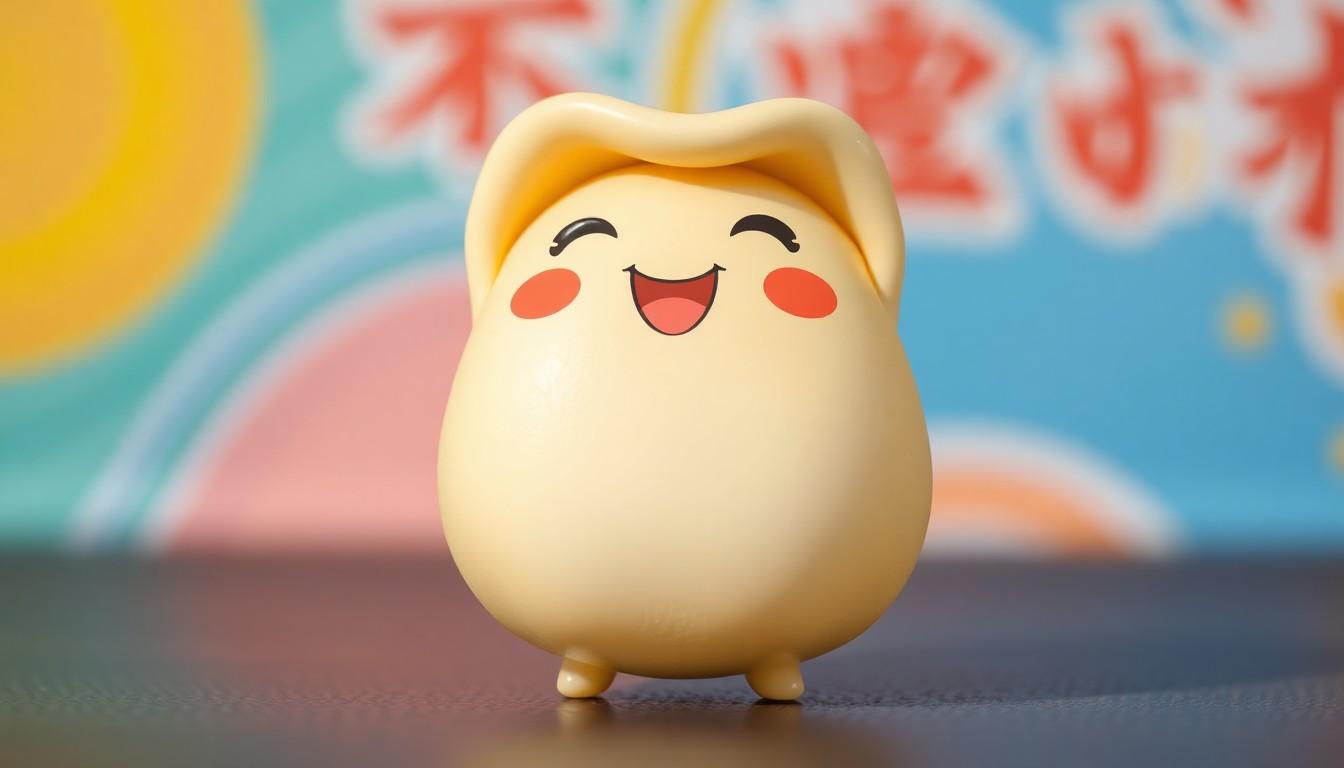We all love a good laugh and sometimes the best jokes come from real life. Asian names can be clever quirky or downright hilarious—whether it’s a playful twist of language or a surprising meaning that catches us off guard. These names spark curiosity and bring a smile to our faces reminding us how much fun language can be.
Understanding The Appeal Of Funny Asian Names
We find that funny Asian names really stand out thanks to their clever twists and playful surprises. Naming customs across Asia often blend sounds and word meanings in ways that catch us off guard, giving us a good laugh. Sometimes, these names use puns or double meanings that sound like everyday phrases or even pop culture references. In other cases, unexpected combinations of words become memorable for their sheer quirkiness—think of examples like “Wi Wi Wang” or “Sue Yu.” Cultural differences also play a role, making some names sound much funnier to English speakers than to those in the original language. It fascinates us how a simple change in pronunciation or spelling can turn a normal name into something hilarious. We notice a consistent pattern: humor connects people, so the joy behind these names often bridges gaps and starts conversations.
Exploring The Cultural Context Behind Funny Asian Names

Funny Asian names often tell us more than just a joke. They reflect how cultural nuances and language quirks shape humor, helping us connect and spark conversations.
The Role Of Language And Pronunciation
Sometimes, hearing a name in English creates instant comedy because Asian languages often have different phonetic rules. We might come across names like “Wi Tu Lo” or “Sum Ting Wong” that sound perfectly ordinary to native speakers but become hilarious when said out loud in English. Using puns or clever wordplay, many Asians enjoy creating playful usernames or nicknames, especially online. These names serve as genuine ice-breakers, and they often open doors to new friendships and show off personal creativity. Adopting funny names online isn’t just about humor; it reflects the ingenuity and adaptability found in many Asian cultures.
Differences In Meaning Across Languages
Translating a name from one language to another can completely change its meaning. We notice that names which carry respect or tradition in Asian cultures might sound funny or unusual in English. For example, “Pho King” comes from a Vietnamese dish but turns into a clever pun in English, while “Boy Bakal” in Filipino sounds both lighthearted and fun to English speakers. Many such names aren’t funny in their original context. What makes them amusing is the way translation unveils new and unexpected meanings. Using these names doesn’t only show a sense of humor—it also highlights how language and culture interact, shaping the way we experience everyday words.
Highlighting Hilarious Chinese Names And Their Stories

Let’s explore how Chinese names take a playful turn through translations, puns, and unexpected combinations. Some simply make us laugh out loud, while others surprise us with their clever mix of sounds and meanings.
Amusing Translations And Misinterpretations
Literal translations from Chinese often turn serious-sounding names into comedy gold for English speakers. “Please approach, Kum Hia” sounds like an invitation you’d hear at a prank show. We find humor in “Who fertilized the field? Hu Flung Dung” partly because the name reads like a punchline. Some names become funny because of the way different dialects or pronunciations transform them. For example, “Belle Chan” morphs into “Belachan,” echoing the word for a pungent shrimp paste. A name like “Lim Chee Wai” gets its playful twist because it sounds similar to “Lim Chee Bye,” which has an entirely different meaning in other Chinese dialects. These hilarious moments often pop up in internet memes, text conversations, and casual banter among friends.
Popular Examples Of Funny Chinese Names
Food-inspired names never fail to get a chuckle. “Egg Foo Young,” “Chop Suey Chow,” and “Wonton Wáng” read like a restaurant menu but turn into unforgettable nicknames when attached to real people. Cultural mashups bring extra flavor—imagine meeting “Kung Pao Kevin” or “General Tso” at a party. We also come across creative combinations like “Peking Pete,” “Wok N’Roll,” and “Fortune Fong,” which instantly suggest both Chinese heritage and a playful take on identity. Playful reinterpretations include “Chow Fun Chu,” “Szechuan Sam,” and “Won Ton Wong.” Many of these names hit the spotlight in stand-up comedy, forum threads, and viral social media posts, inviting everyone to laugh at the fun quirks that happen when languages and cultures mix.
Showcasing Funny Japanese Names With Unexpected Meanings

Sometimes, Japanese names can catch us off-guard with their hidden jokes or quirky origins. We’ve found that names like these blend cultural context, meaning, and pronunciation to create truly memorable laughs that everyone can enjoy.
Playful Word Combinations In Japanese Names
Nicknames and names in Japanese often get funny when you pair unexpected characters together. Dango, for example, literally means “dumpling,” and while you wouldn’t find it on a family registry, it makes a hilarious and adorable pet or gaming name. Next, Chibi brings a smile because it means “small” or “tiny”—think of the cute, pint-sized characters in anime. Many of us have seen these names pop up in social media handles or gaming profiles, always adding a light-hearted energy to any interaction. Names like Takashi, on the other hand, don’t sound especially funny in Japanese, but their pronunciation (“Tah-kah-shee”) turns playful for English-speakers new to the language.
Examples Of Hilarious Japanese Names
Baka stands out as a classic—since it means “fool” in Japanese slang, we often see friends teasing each other with it as a playful nickname. Obake cracks us up because it means “ghost,” and it’s rooted in Japanese folklore, making this an amusing choice for anyone who enjoys a supernatural twist. Taro, officially translating to “eldest son,” becomes instantly funny if someone who isn’t the oldest starts using it in a group chat. Yusuke adds to our mix not just with its meaning (“help” or “assistance”) but because its pronunciation (“Yoo-skay”) seems tailor-made for friendly banter. Entirely different moods come from names like Hayato (Falcon person) and Takumi (Artisan)—these can become inside jokes based on someone’s hobbies or personality quirks. Sometimes, Japanese food names like Dango slip into our friend circles, turning regular introductions into laugh-out-loud moments.
| Japanese Name | Meaning | Notes |
|---|---|---|
| Baka | Fool | Popular as a teasing nickname |
| Obake | Ghost | Folklore-inspired, quirky |
| Chibi | Small/Tiny | Common in anime or friend groups |
| Dango | Dumpling | Often seen as a nickname |
| Takashi | Noble/Prosperous | Sounds funny in English |
| Taro | Eldest son | Ironic when used playfully |
| Yusuke | Help/Assistance | Playful context pronunciation |
| Hayato | Falcon person | Often used for animal lovers |
| Takumi | Artisan | Humorous for hobby enthusiasts |
Unveiling Comical Korean Names And Their Origins

Funny Korean names bring their own style of wit and charm, thanks to language quirks and clever character pairings. Sometimes, even the simplest translations make us giggle or surprise us with playful twists.
Cultural Nuances In Naming Conventions
Korean names usually have a family name first and a two-part given name. This structure gives plenty of creative freedom for playing with words and meanings. Many parents pick Hanja (Chinese characters) for their kids’ names, and different combinations can mean anything from “bright future” to “juicy melon.” Wordplay shows up all the time. Some names blend sounds or double meanings just for fun—like when the name “Jang Bori” hints at “long hair” but also links to “barley,” adding an unexpected and whimsical note. Humorous contrasts appear often, too. Naming someone “Kim Dong-Sook” puts “east” right next to “plain,” which sounds funny in both English and Korean contexts. Our culture values cleverness in names, even if they end up making us laugh.
Noteworthy Funny Korean Names
We’ve come across a bunch of Korean names that stand out for their comedy, intentional or not.
- Jang Bori (장보리) makes us smile because it literally means “long hair” but also brings “barley” to mind, giving the name a cute twist.
- Kim Dong-Sook (김동숙) puts “east” and “plain” together, creating a lighthearted contrast that’s hard to forget.
- Choi Geum-Ja (최금자) translates to “golden lady,” a name that feels fancy, maybe even extravagant, and openly invites a little laughter.
- Im Hae-Soo (임해수) means “sea water.” This playful combination conjures up images of nature and wide-open oceans, offering a gentle sense of humor.
- Jeong Byeong-Guk (정병국) ends up meaning “country of illness,” which definitely catches you off guard and feels comically tongue-in-cheek.
- Everyday nicknames also keep the comedy going. Calling someone “바보야” (babo-ya) or “dummy” is common as a tease or term of endearment here.
- When we put Korean names through English filters, things get even funnier. Names like “Sukme” or “Sukbum” sound completely normal in Korea but can make English speakers do a double take.
Korean naming traditions blend meaningful character choices with puns and clever combos that make us smile, even across language barriers.
Featuring Entertaining Southeast Asian Names

Southeast Asia gives us plenty of names and nicknames that can amuse, surprise, or spark laughter when we look at their origins and translations. Each culture brings its own sense of fun to the table, making this region a treasure trove for those who love language quirks.
Thailand’s Humorous Nicknames
People in Thailand love giving children playful nicknames that stick for life. We often hear examples like “Mai” for a younger sibling, meaning “new,” or “Yai” for the eldest, meaning “big.” Friends sometimes introduce each other with nicknames such as “Nong Moo” (younger pig) or “Por Pla” (father fish), making introductions genuinely entertaining. Thai families choose these names based on personality traits, looks, or even a favorite animal. Chue len, as the locals call them, let everyone express affection and humor every day.
Quirky Filipino First And Last Names
Filipino names mix local traditions with Spanish and American flavors, giving us plenty to smile about. Nicknames like “Jun-Jun” for someone named Juan or “Bong-Bong” for a Bonifacio reflect common affection. Parents often get creative by doubling syllables or picking names that rhyme. Last names such as “Dumagat,” linked to river-dwelling ancestors, or “Bautista,” pulled from Spanish church records, have stories behind them that sound amusing but carry cultural weight. Family gatherings will usually include playful teasing about these quirky surnames, which remain an essential part of Filipino community life.
Examining The Impact Of Funny Asian Names In Pop Culture

We see funny Asian names turning into major conversation starters in the digital age. Online spaces bring these playful identities to the forefront, helping us laugh and relate across boundaries.
Viral Social Media Trends
Social media thrives on clever usernames and quirky handles, and funny Asian names fit right in. We notice users in communities like TikTok and gaming forums coming up with puns or mashups that spotlight their humor and personality. For example, fans often create playful nicknames for Western celebrities by giving them humorous Chinese translations like “Cow Sister” for Mariah Carey or “Little Hook” for Ariana Grande. These lighthearted tags spread quickly and bring people together through shared laughter. Content creators use these names to break the ice or spark memes, bridging cultures and showing off creativity without crossing into mockery.
Movie And TV Show References
Media sometimes shines an awkward light on Asian names, as we remember with the infamous San Francisco TV news station blunder in 2013. In that case, anchors read fake Asian-sounding names such as “Captain Sum Ting Wong” on-air, which set off outrage and conversations around cultural sensitivity. While some TV comedies and viral videos keep poking fun at names, there’s been a shift. We now see more respectful and clever takes where comedians and educators use humor to help viewers understand the meaning and beauty behind real Asian names. Instead of just laughing at names, we’re learning to laugh with the stories and cultures behind them, making pop culture a place for connection and understanding.
Navigating Sensitivity And Respect When Discussing Funny Asian Names

We all love a good laugh, especially when playful names catch us off guard. At the same time, we’ve got to approach funny Asian names with respect and stay mindful of cultural differences.
Avoiding Stereotypes And Offensive Humor
Respect always comes first. Sometimes, names that sound humorous in English—like “Chong,” “Cheng,” or “Tong”—carry deep meaning and heritage in their original language. Many Western jokes put these names front and center, but using them as punchlines can turn family pride into mockery. Media and movies have sometimes relied on these “funny” names for gags, which only reinforces outdated stereotypes and can be flat-out hurtful.
Making people the butt of jokes because of their heritage crosses the line. Let’s remember, mocking names for laughs isn’t clever—it marginalizes Asian communities and erases their individuality. We can do better by pausing before we join in with puns that might be funny in English but insulting in the original context.
Appreciating Cultural Diversity With Humor
Celebrating the lighter side of names works best when we really understand their roots. So many Asian names reflect virtues, family hopes, and beautiful traits, chosen with care and love. Each name tells a story, and learning about those stories turns curiosity into genuine appreciation.
For example, discovering why “Mai” means “new” in Thai or why “Taro” is a nod to the eldest son in Japanese builds our knowledge. Humor finds its richest ground when we look beyond stereotypes and get to know the cultural tapestry behind the name. Connecting over the cleverness in translations or wordplay—without poking fun at real people—helps spark conversations, foster friendships, and deepen respect while still keeping the joy and excitement alive.
Conclusion
Exploring the industry of funny Asian names reminds us that language is full of surprises and laughter. Whether we’re sharing a quirky username or discovering a clever pun, these names bring people closer and spark curiosity about different cultures.
Let’s keep celebrating the creativity and stories behind every name. By approaching humor with respect and understanding, we can enjoy the lighter side of language while honoring the rich heritage each name carries.
Frequently Asked Questions
Why are some Asian names considered funny in English?
Many Asian names can sound funny to English speakers because of how their pronunciation resembles common English words or phrases, or due to playful puns. These humorous effects are often unintended, resulting from language differences, translations, or cultural nuances.
Do these names have the same meaning in their original languages?
Often, these names are perfectly normal in their original languages and may even carry positive or respectful meanings. The humor typically arises when the name is pronounced or understood from an English-speaking perspective.
Are funny Asian names intentionally created to be humorous?
Sometimes, names or nicknames are intentionally playful, especially on social media or in entertainment, where people enjoy puns and clever wordplay. However, many seemingly funny names are simply everyday names in Asian cultures and not meant to be jokes.
What are some common sources of funny Asian name examples?
Funny Asian names often come from translations, mispronunciations, blending of sounds, or coincidental similarities to English words. Media, internet memes, and comedy also help circulate and popularize these names.
Is it offensive to laugh at funny Asian names?
It can be offensive if the humor mocks the name’s culture or heritage, perpetuates stereotypes, or belittles individuals. It’s important to approach humor around names with sensitivity and respect for cultural differences.
Why do some Asians use playful usernames or nicknames online?
Many Asians enjoy using creative or humorous nicknames online as ice-breakers, to show personality, or to entertain friends. These playful handles are often created for fun and do not carry the same seriousness as real names.
How do cultures differ in finding names funny?
Different cultures have unique sounds, meanings, and slang, so what’s funny to English speakers might seem ordinary to someone from Asia. Likewise, some wordplays might be lost or misunderstood if you don’t know the language.
Can the translation of Asian names change their meaning or tone?
Yes, translating names can completely change their meaning, sometimes accidentally resulting in names that sound funny or odd in English, even if the original name is meaningful or respectful.
Are there rules about making jokes with names from other cultures?
It’s best to avoid jokes that rely on stereotypes or disrespect cultural traditions. If you’re unsure, learn about the name’s origin and meaning first and always prioritize kindness and respect.
How can humor surrounding Asian names help foster cultural understanding?
When done respectfully, humor about names can spark curiosity, conversations, and connections between cultures. Appreciating the stories and significance behind names helps build mutual understanding and celebrate linguistic diversity.







